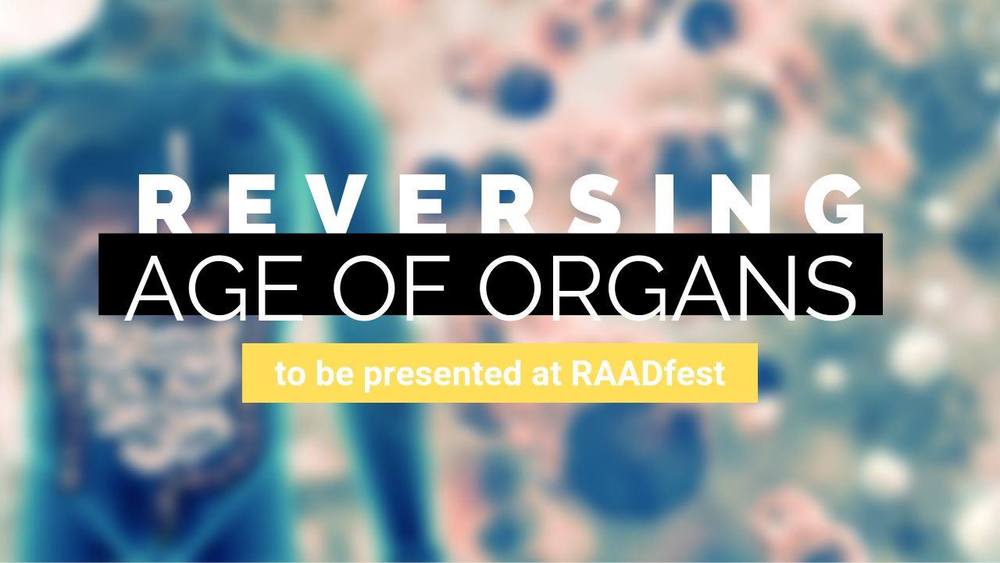The proof-of-concept demonstrations herald a major step forward in quantum communications.
Dr. Mike Chan, Stellar Biomolecular Reserch, chats with James Strole, Director of the Coalition for Radical Life Extension, about what he’s bringing to RAADfest 2019: age reversal of organs using cell and stem cell therapies.
For more info and to register: http://www.raadfest.com/
Organized by the Coalition for Radical Life Extension, RAADfest is the largest event in the world where practical and cutting-edge methods to reverse aging are presented for all interest levels, from beginner to expert. An interactive, inclusive event featuring dozens of top presenters in life extension, regenerative medicine, super longevity, lifestyle, genetics, life hacking, finances, and more. RAADfest will also feature activists and advocate entertainers, celebrations, RAADcity the Expo and RAADclinic.
The Coalition for Radical Life Extension is a non-profit organization.
IDN-InDepthNews is flagship agency of the global International Press Syndicate Group helping to discover the world Beyond Breaking the News.
The Hong Kong Science Park is one example of how national planning and strategic investment have enabled China’s Pearl River Delta region to become a global leader in transformative industries like synthetic biology. Will the US follow suit?
Robotics engineers at MIT have built a threadlike robot worm that can be magnetically steered to deftly navigate the extremely narrow and winding arterial pathways of the human brain. One day it could be used to quickly clear blockages and clots that contribute to strokes and aneurysms, while at the same time making the current state of robotic evolution even more unsettling.
ROME (AP) — The Stromboli volcano has erupted, spewing fiery chunks of lava onto the tiny Italian island and alarming residents and tourists.
The National Institute of Geophysics and Volcanology says a strong volcanic explosion just after noon Wednesday sent flaming lava rolling down the volcano’s slopes to the edge of the sea. A similarly spectacular eruption in July on Stromboli killed an Italian hiker.
There were no immediate reports of injuries. Some small fires were reported near one of the Mediterranean island’s hamlets.
A SpaceX Dragon capsule that set down in the Pacific Ocean on Tuesday after having been docked at the International Space Station since late July became the first such vehicle to do three of those trips. SpaceX uses its Dragon cargo capsule to ferry experiment materials, supplies and more to and from the ISS, and it also refurbishes and reflies these capsules when possible as part of its ongoing mission to make spaceflight more reusable, and therefore more economical.
After it splashed down yesterday, SpaceX recovered the capsule from the ocean and returned it to shore. The vehicle is loaded with return cargo from the ISS, with almost 2,700 pounds of materials and results from experiments, which NASA staff on the ground will now examine and study. Dragon carried more than 5,000 pounds of stuff to the Space Station, and over half of that was related to science and research missions. One of the return cargo items is actually a spherical robot called CIMON, and is basically a space-based smart speaker companion.
The first international case of listeriosis linked to an outbreak in Spain that has sickened almost 200 people and killed two is being investigated by British public health officials.
The outbreak has been traced to contaminated chilled pork products under the brand “La Mechá” made by Magrudis, based in Seville. The potential infection is in a man from England who ate the product in Seville in mid-August. He was treated at a hospital in France before returning to the United Kingdom.
A Public Health England spokeswoman told Food Safety News the agency does not disclose patient details so she was not able to provide information on the age of the man or where in England he lives.
Researchers created ‘fettuccini-like silicone fingers’ to capture fragile marine life without damaging it.
It’s official: Android 10, the next version of the Android operating system, ships 3 September 2019. Well, it’s semi-official, at least.
Mobile site PhoneArena reports that Google’s customer support staff let the date slip to a reader during a text conversation. Expect the operating system, also known as Android Q, to hit Google’s Pixel phones first before rolling out to other models. It will include a range of privacy and security improvements that should keep Android users a little safer.









